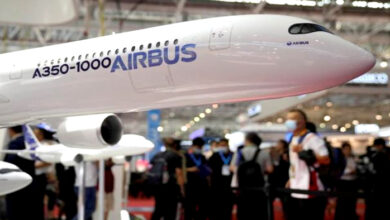Competition intensifies for China’s electric SUV market, both domestically and internationally

The battle for electric vehicles (EVs) is shifting to the SUV-styled segment, which is the largest in the market and dominated by Tesla and BYD, making China the center of a price war in this space. The market is already crowded with over 90 models, but at least 20 new models from both Chinese and foreign brands were launched in April, which is set to increase pricing pressure and margins at home while driving exports.
Chinese EV makers have followed Tesla’s lead and lowered prices of their own electric SUVs, cutting into the sales of internal combustion engine (ICE) vehicles as the price gap between the two technologies narrows. China is set to export more EVs to ease the competitive pressure in the domestic market. SUVs have become popular in China, representing nearly 40% of all cars sold, with 400 SUV models of all fuel types.
Since Tesla delivered its domestically-produced Model Y two years ago in China, the popularity of electric SUVs has exploded, becoming one of the fastest-growing segments in the world’s largest auto market. Both domestic and foreign brands are represented among the new models rolled out at the Shanghai Auto Show in April. Even legacy automakers Volkswagen, BMW, and Toyota are counting on new electric SUVs to bolster China sales.
Xpeng and Nio, two Chinese EV startups, have six SUV models each, while EV-only brands launched by Chinese state-owned car companies, such as GAC’s Aion, are pushing all-electric SUVs. All of them will be competing with the existing 93 electric SUV models, with the top 10 brands accounting for 84%, according to a Reuters analysis of data from the China Association of Automobile Manufacturers (CAAM).
Despite recent minor price hikes, Tesla’s Model Y is still 20% cheaper in China than in early October. As a result, Xpeng, Leapmotor, and others have offered their own discounts, while BYD gave a discount of $1,000 on its market-leading Song Plus SUV, or about 4% off. Those who have not slashed prices on existing models to protect their brand value have opted to offer lower-than-expected starting prices for new models, along with longer driving ranges and greater autonomous driving features. The situation is “brutal” for legacy foreign brands targeting the mass market with small SUVs priced below $40,000, such as Ford, said Tu Le, founder of Beijing-based advisory firm Sino Auto Insights.





